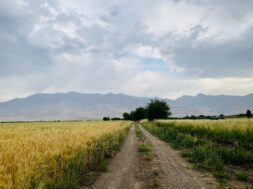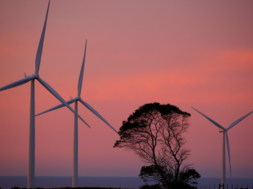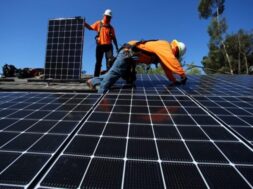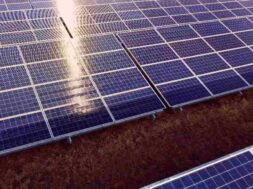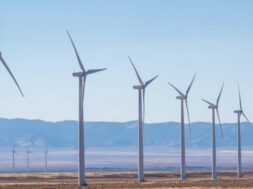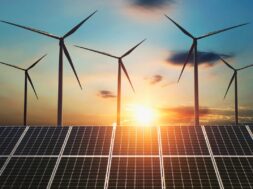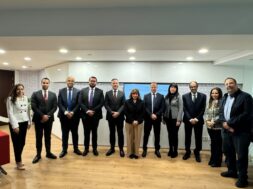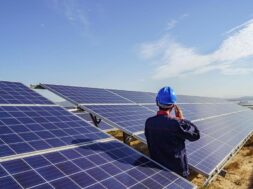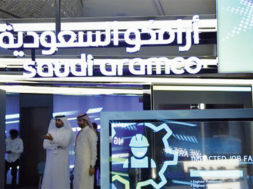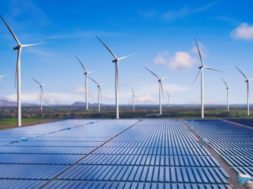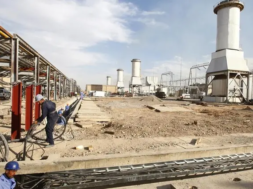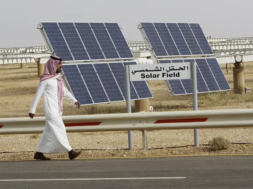
The country is running out of water – and a polluted Tigris makes things even worse
To visit Kurdistan in springtime is to suckle one’s soul and senses with wildflowers and fresh fruit. The land is alive with flowers: the yellow of wild mustard, the pink of bindweed, the red poppies as well as the orange blossom on the pomegranate trees.
Driving past fields of ripe wheat, with a Kurdish friend who works for the Kurdistan Regional Government, we stopped near the town of Halabja to eat mulberries straight from the trees – sour black ones and sweet white ones. On the mountain side of Sitak, he barbequed masgoof, butterflied carp, which we devoured with traditional flatbread, grilled tomatoes and onions.
I spent a Friday hiking in Mergapan with Barham Salih, a Kurdish politician who previously served as the president of Iraq and whom I have known for 20 years, from my time working for the Coalition in Iraq. We crossed a low-flowing river using stepping stones and the helping hands of peshmerga guards, traversed tall grasses amid Aleppo oaks in the foothills of the mountain, and stopped frequently to photograph the views across the valley.
As we walked, our conversation focused not on the continuing saga of Iraqi politics, but on the environmental crisis afflicting the country, driven by the inter-linked phenomena of climate change and poor management of natural resources.
Addressing the environmental crisis is a passion for Barham. He noted that Iraq’s population has almost doubled to 40 million since the 2003 invasion, and is expected to double again by 2050. Demographics are increasing the demand for water at a time when desertification is affecting 39% of Iraq, and 54% of agricultural lands are threatened by salination.
As president he launched the Mesopotamia Revitalisation Project, an environmental strategy that includes afforestation, modernising the administration of the Tigris and the Euphrates rivers, generating clean energy, and encouraging investment through climate finance facilities. It was an ambitious plan. He laments that there has been little progress in implementing it.
Afterwards, on the patio outside his house, we feasted on dombalan (desert truffles), farika nok (green chickpeas), palpena (purslane) in our salad and soup, kardi (wild arum), garas (green plums), and drank yoghurt with qazwan (wild pistachios). His wife, Sarbagh, is a botanist with a PhD from the University of Bath who founded the Kurdistan Botanical Foundation, which has published three books on the region’s fauna and flora, identifying tens of previously unrecorded species in Iraq. The food served in their home is local and organic.
Sadly, this pastoral idyll is threatened by the increasingly unpredictable weather. Over the last few years, Iraq has experienced drought and the lowest levels of rainfall on record, with temperatures soaring to 50C, rising much faster than the global average. During the week of my visit, unseasonal thunderstorms set fields on fire near Kirkuk and flooding damaged the harvest across the north. The UN has identified Iraq as the fifth most vulnerable country in the world to climate change, with the World Bank warning that Iraq will face extreme water scarcity by 2030, and Iraq’s ministry of water resources predicting a shortfall of almost 11bn cubic metres of water by 2035.
Leon McCarron, an explorer and author from Northern Ireland, recently published Wounded Tigris: A River Journey through the Cradle of Civilisation, an account of his 2021 three-month journey by boat from the source of the Tigris in Turkey, down through Iraq, to the Gulf. On his journey, he observes how the river is being destroyed by illegal gravel mines, dam construction, untreated waste – and how pastoralists and farmers are being forced to leave their land.
Yet he also comes across grassroots activists working to protect the river, to revive community and heritage. This remarkable book warns of the death of a great river that might no longer flow to the Gulf by 2040 – and is a call to action to prevent the birthplace of civilisation from becoming uninhabitable.
While in Sulaymaniyah, I attended a talk at the American University of Iraq on the political and economic implications of the recent oil deal between Baghdad and the Kurdistan Regional Government. Afterwards, I asked the main speaker about Iraq’s progress towards net zero. He laughed.
Few political leaders have made it a priority, despite the Iraqi parliament ratifying the Paris Agreement in 2021. In its nationally determined contributions (NDC), Iraq has committed to reducing flaring at oil and gas facilities, switching from liquid fuels to natural gas, improving energy efficiency, expanding renewable energy technology, and deploying sustainable public transportation technologies. Iraq is a signatory to the global methane pledge, committing to reduce its greenhouse gas emissions by 15& by 2030.
However, Iraq has yet to diversify its economy. Oil exports account for around 90% of government revenues. It is the energy sector that is responsible for 75% of Iraq’s total emissions. While driving around, I observed gas being flared from oil production, emitting large amounts of black carbon into the atmosphere. Despite commitments to capture and utilise the gas, the World Bank reports that Iraq flares around 17bn cubic metres of gas every year, worth around $8bn (£6.4bn). And at the same time, Iraq continues to import gas from Iran.
There is also insufficient public awareness about the climate crisis, and the need to protect the environment. I was shocked at the sight of rubbish thrown in streams, piles of domestic waste left at the sides of the road, blots on a charming countryside, polluting the natural environment. Local government is not effectively disposing of waste. Littering goes unpunished. Roads are heavily congested with traffic. With public transport undeveloped, people use private vehicles.
The International Organisation for Migration reports increasing displacement in Iraq due to the combined effects of conflict, rising temperatures and environmental degradation. The Iraqi government buys wheat and barley directly from farmers at double the international prices – but the area planted with irrigated crops has shrunk in order to decrease water consumption. Increasing numbers of Iraqis are moving from the countryside to the cities to find jobs, putting further strain on services. The population of the Kurdistan region has grown by nearly 30% due to the influx of Syrian refugees and Iraqis displaced from areas destroyed by Isis.
According to Azzam Alwash, Iraq’s leading environmentalist and the CEO of Nature Iraq, agriculture was sustainable in Mesopotamia for centuries due to cyclical flooding that washed away the salts resulting from evaporation, fertilising the land with silt. However, in recent decades, upstream dam-building has stopped floods, and precipitation has declined significantly. Currently, 90% of the water flow in the Euphrates and 40% of the flow in the Tigris comes from Turkey; and Iran has been diverting tributaries to meet its own water needs.
Azzam has urged Iraq, Iran and Turkey to work together to reach an agreement to coordinate dam-building, rerouting of rivers and management of water resources. Azzam strongly believes that with the right policies and investments in renewable energy, in particular solar power and green hydrogen, Iraq could once again become a major food producer and “breadbasket” of the Middle East.
The survival of future generations in the region requires collaboration. In recognition of the fact that the region is on track for a five-degree rise in temperature by the end of the century if it goes about business as usual, the Eastern Mediterranean and Middle East Climate Change Initiative (EMME-CCI) was launched on November 8, 2022 at Cop27 in Sharm el-Sheikh. Bahrain, Cyprus, Egypt, Greece, Iraq, Israel, Jordan, Lebanon, Oman and Palestine adopted a resolution to coordinate efforts on climate mitigation and adaptation, to strengthen regional cooperation, and to mainstream climate policies across all sectors. It was a moment of common sense and courage.
But rhetoric must be met by action to ensure such plans are resourced, coordinated and implemented. Given its oil, rivers, biodiversity – and its central geographical location – Iraq needs to lead by example, before it is too late.
